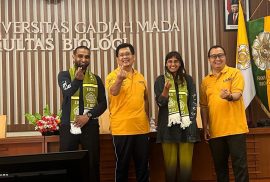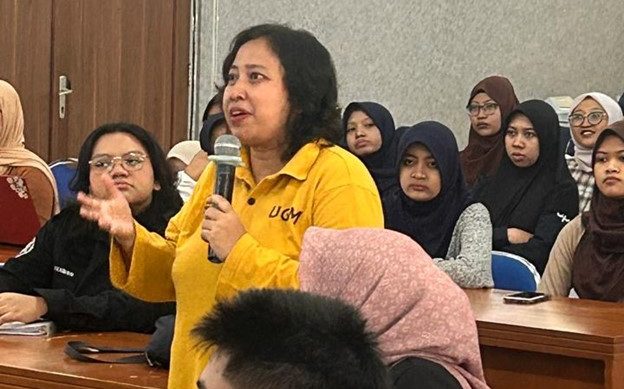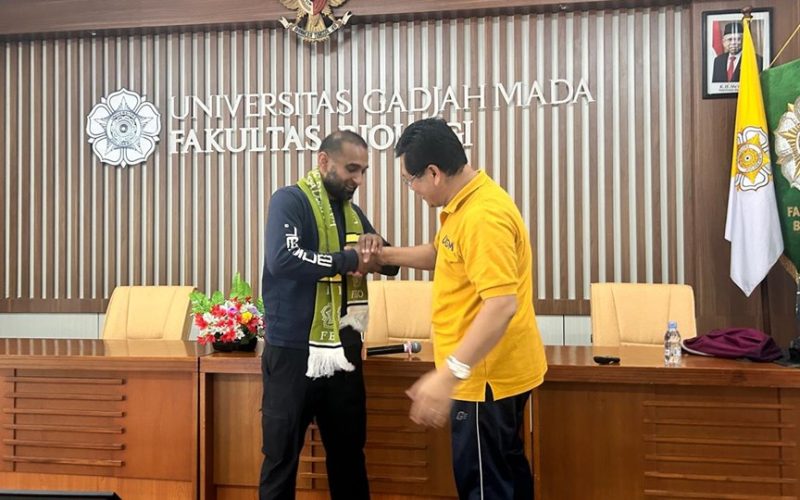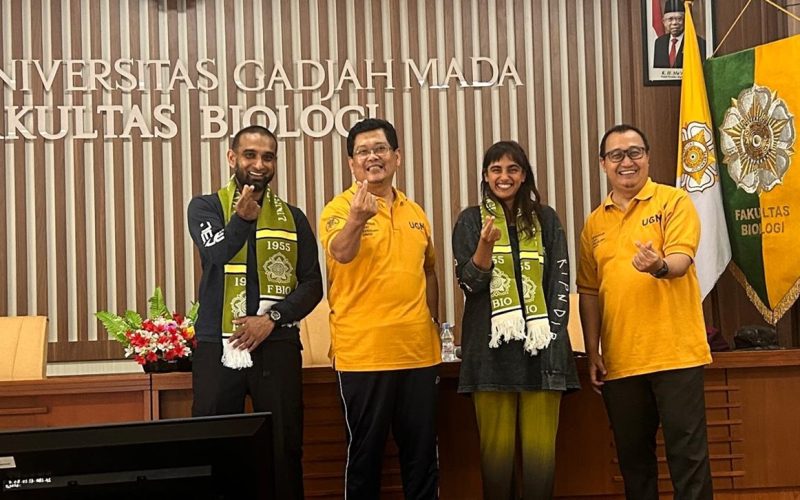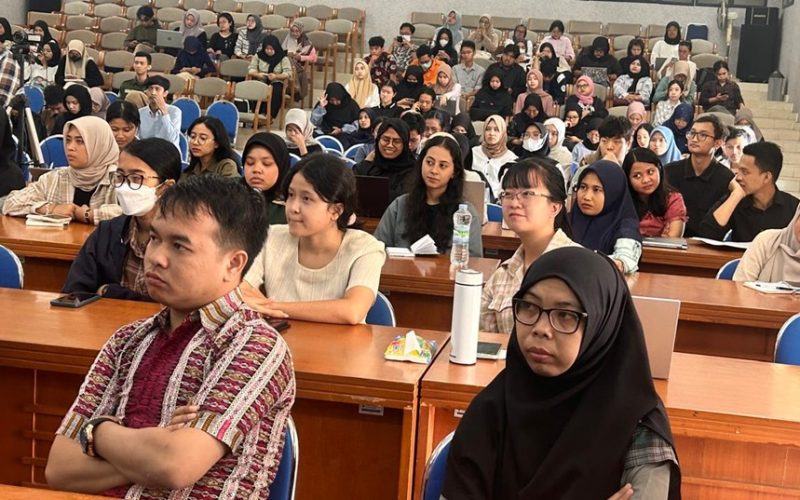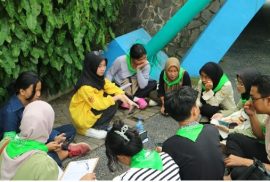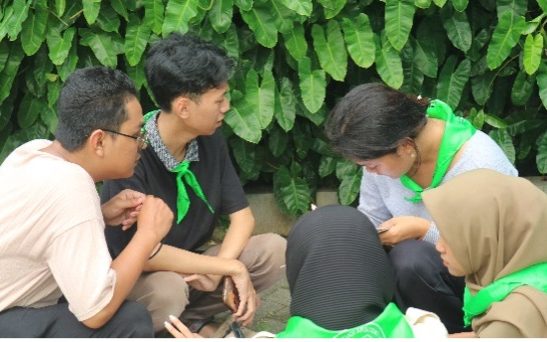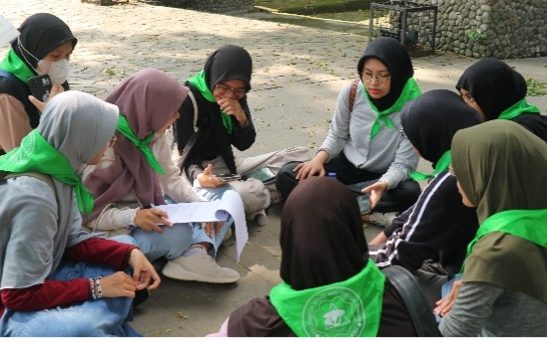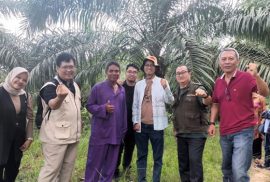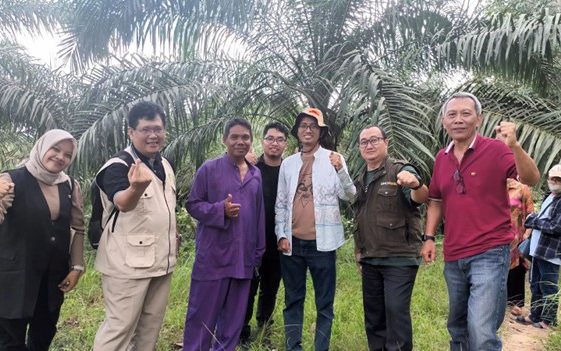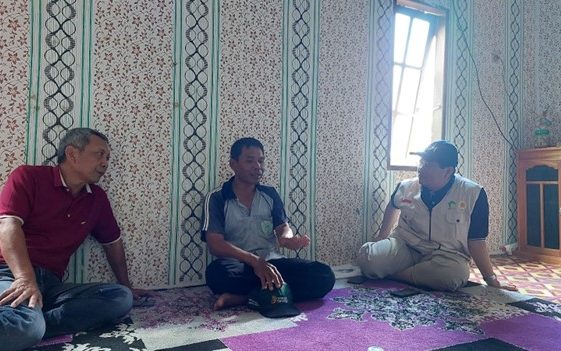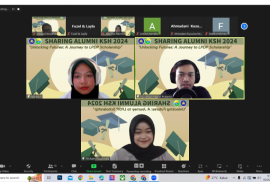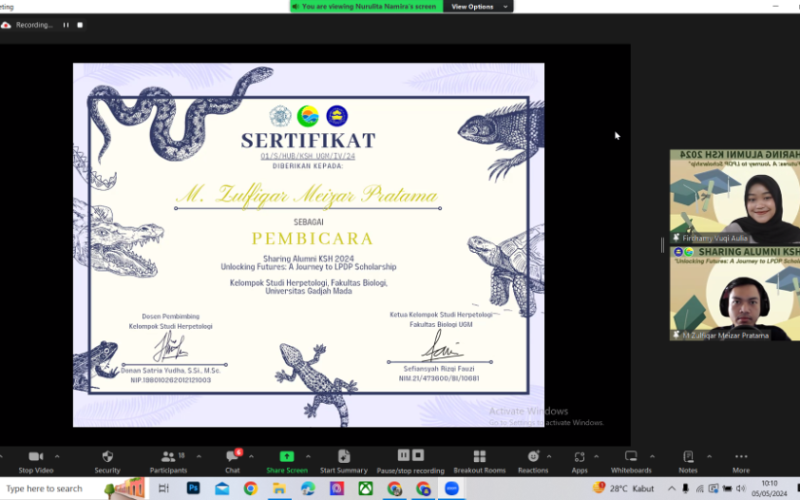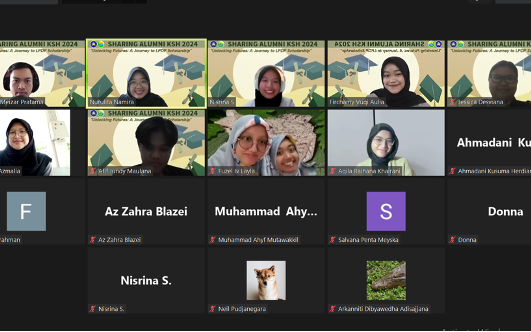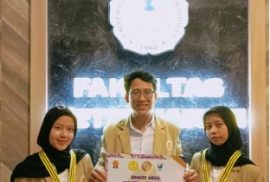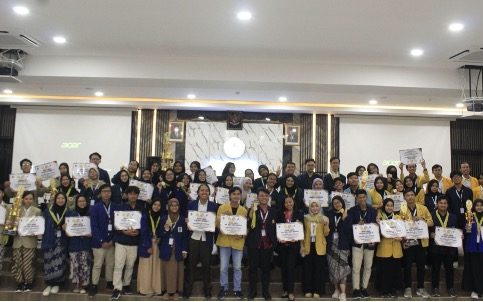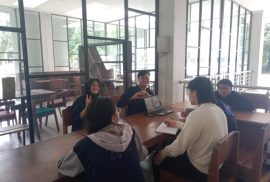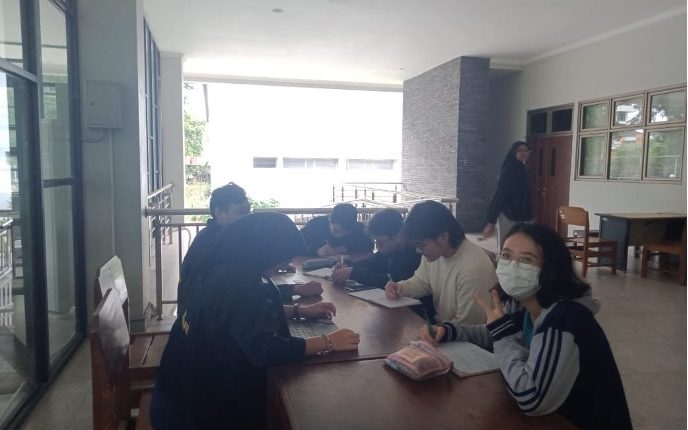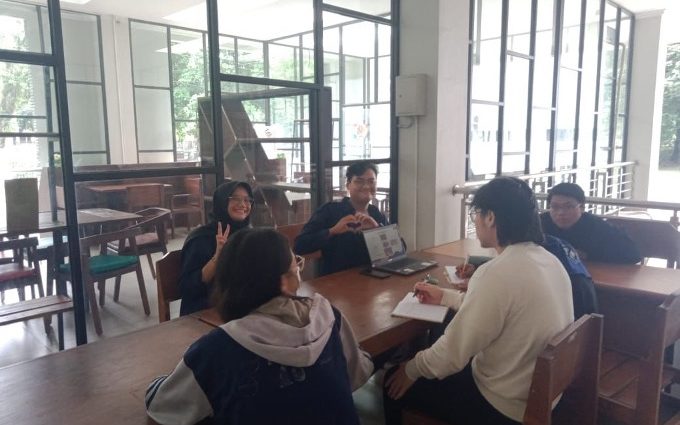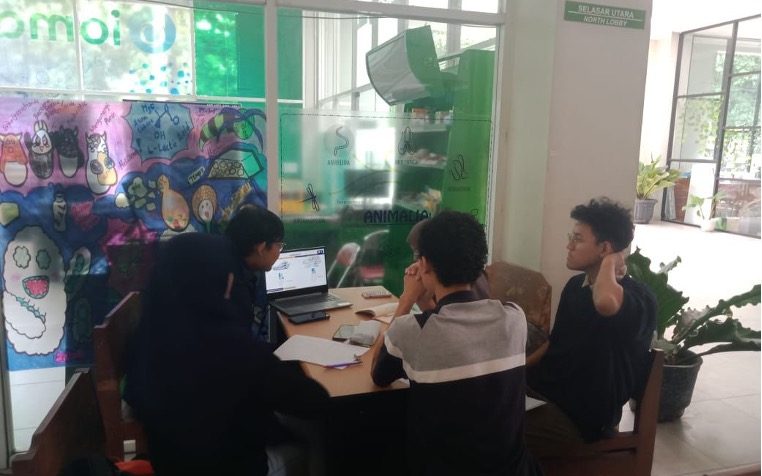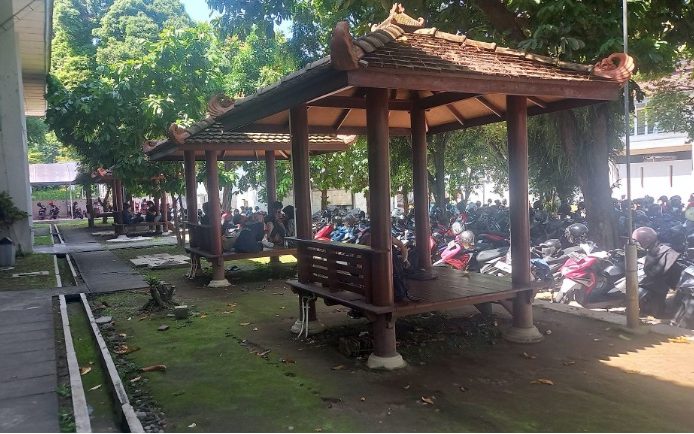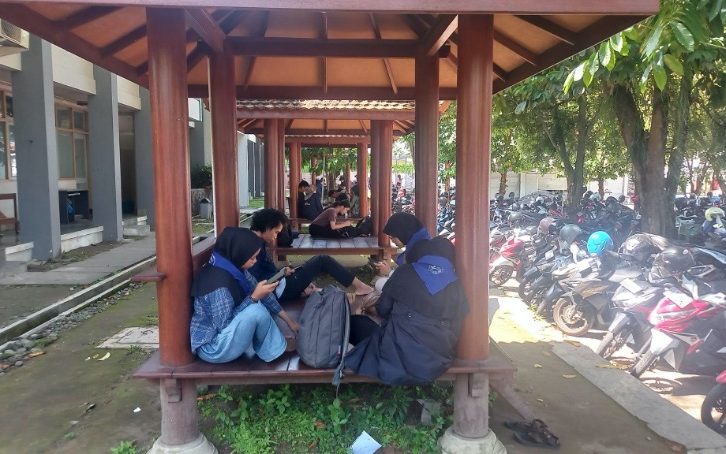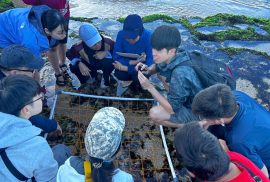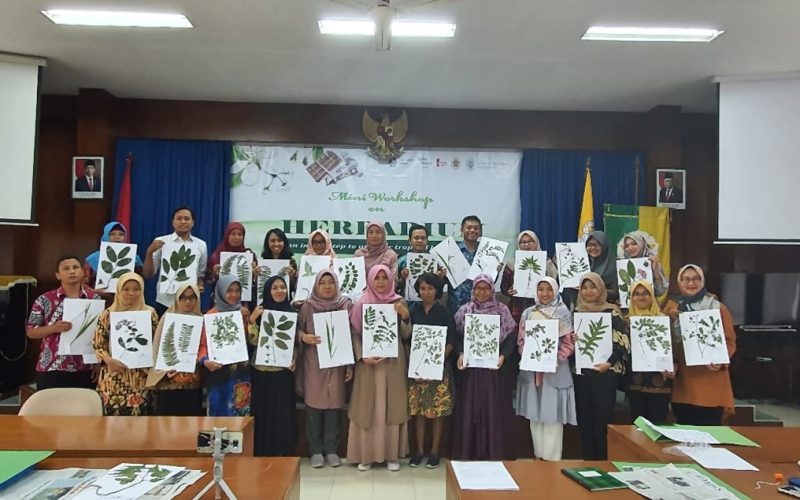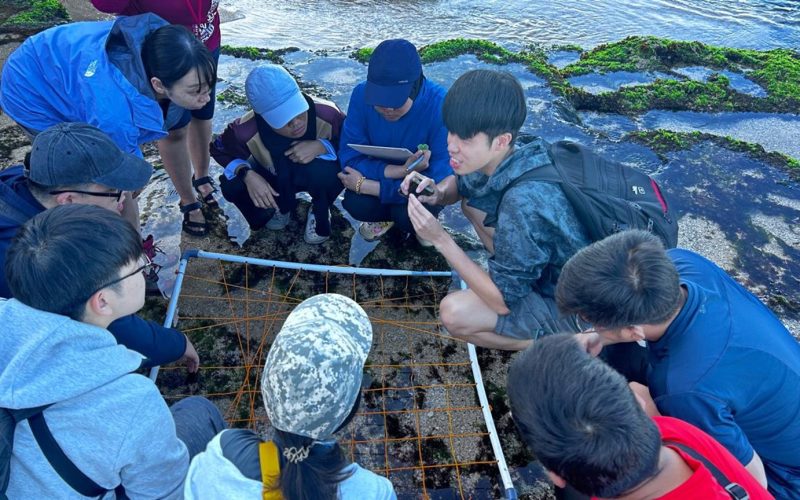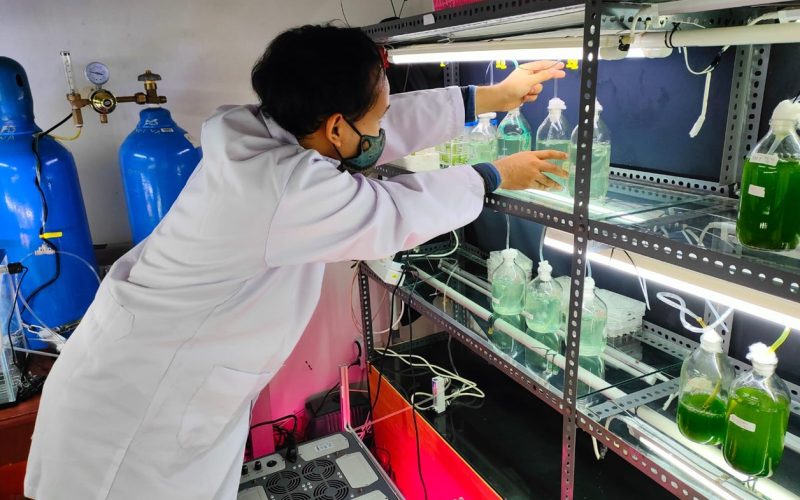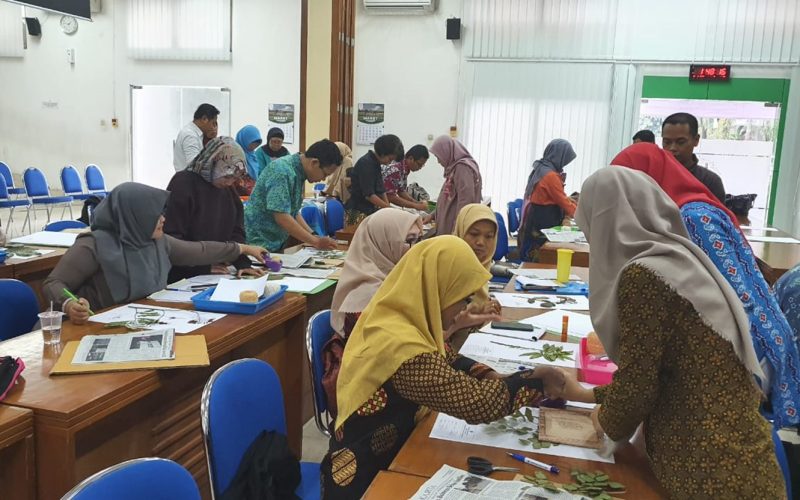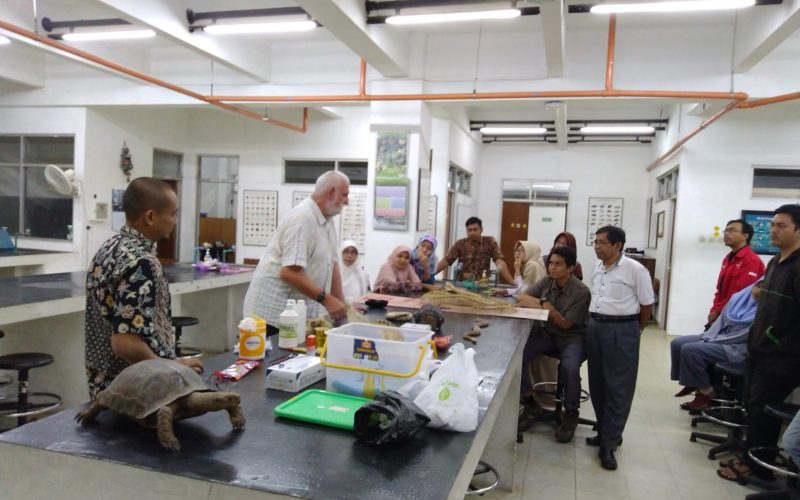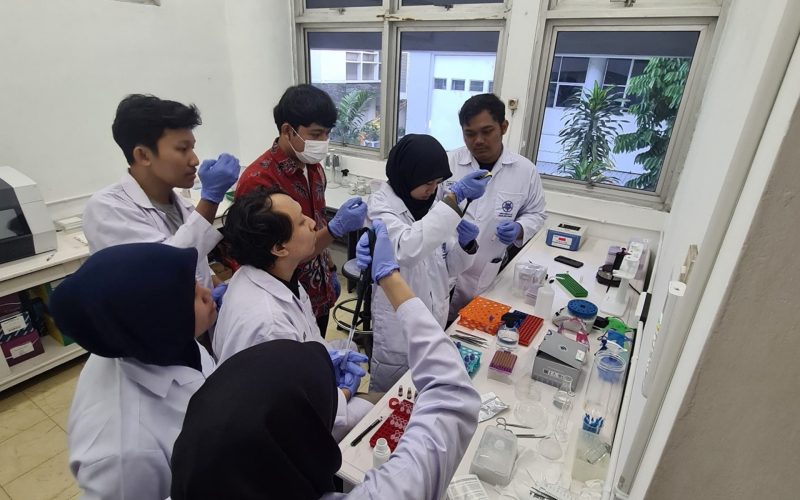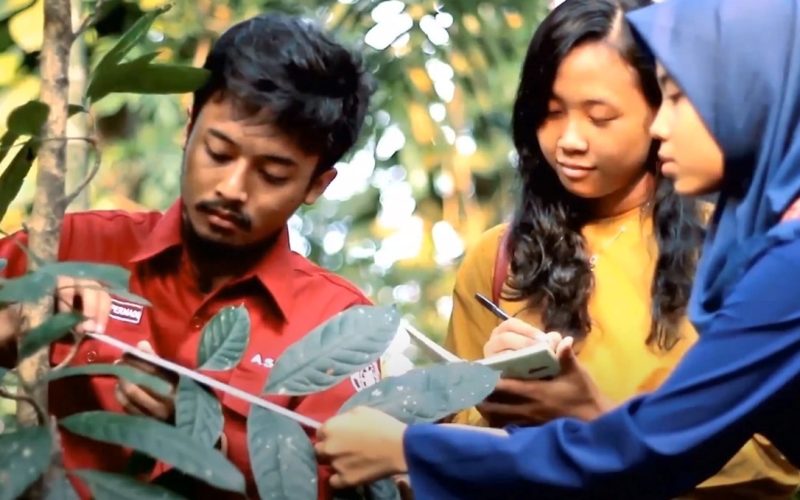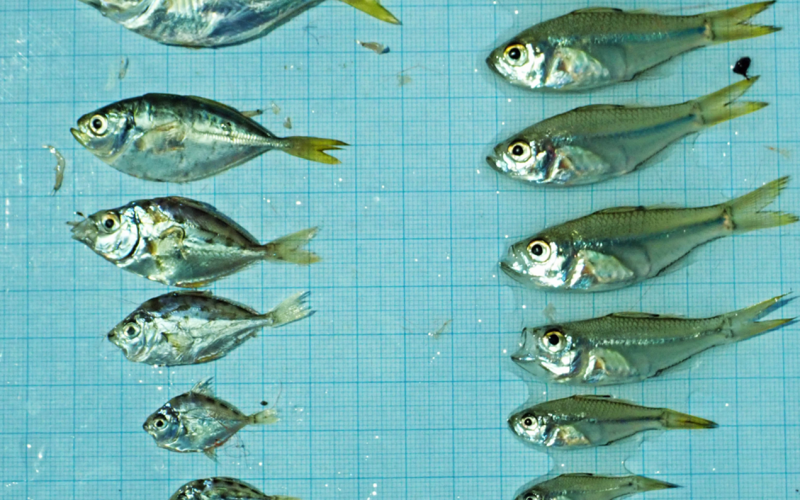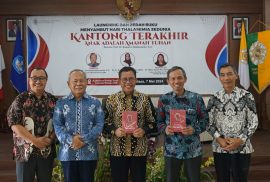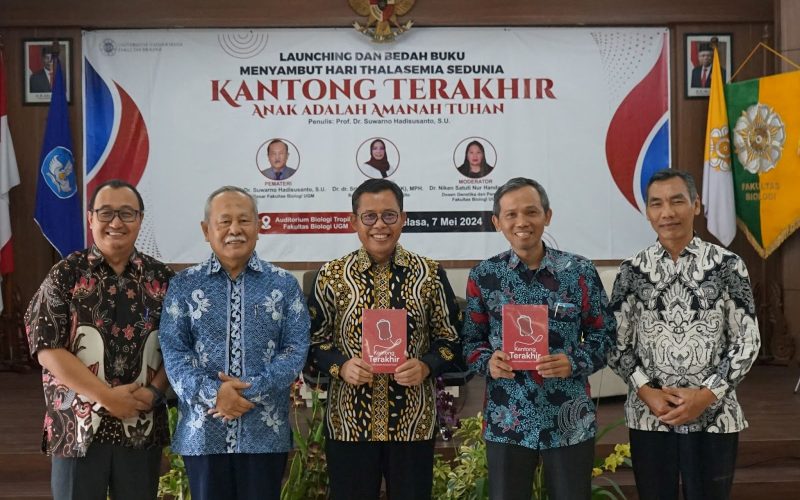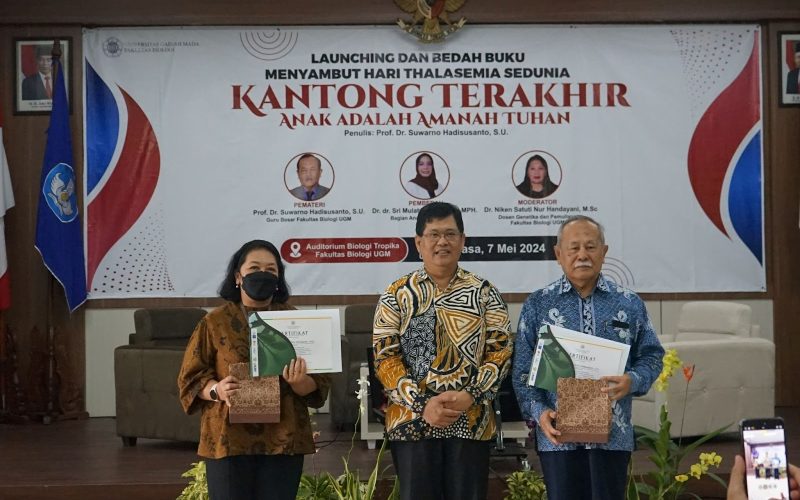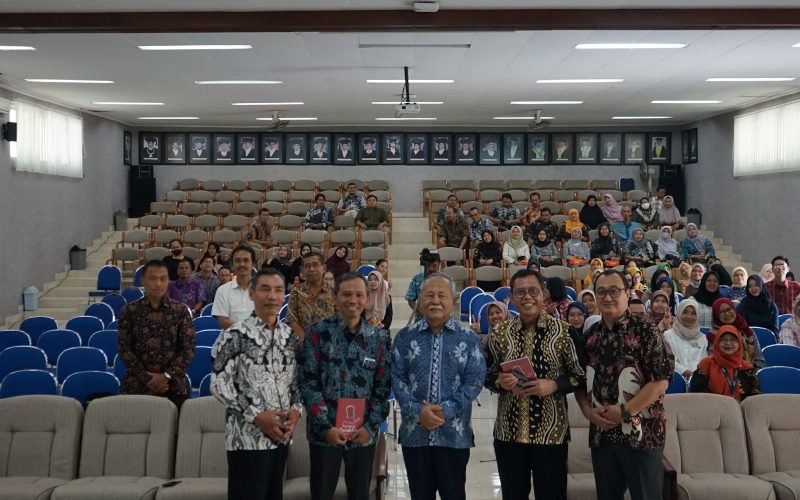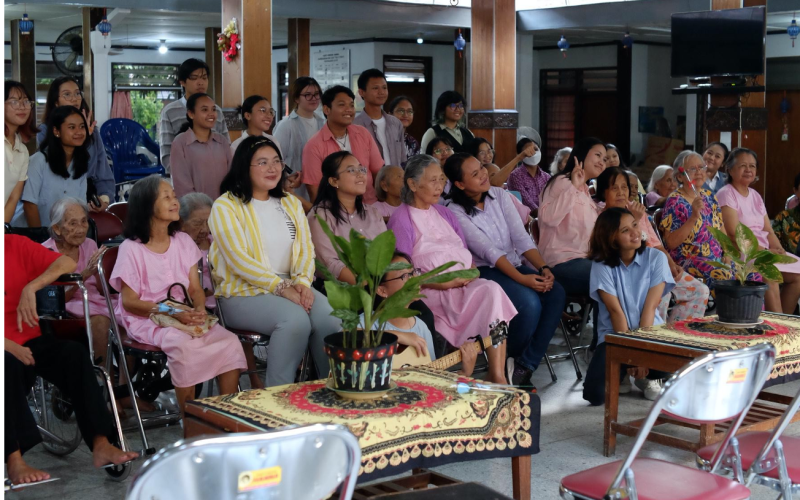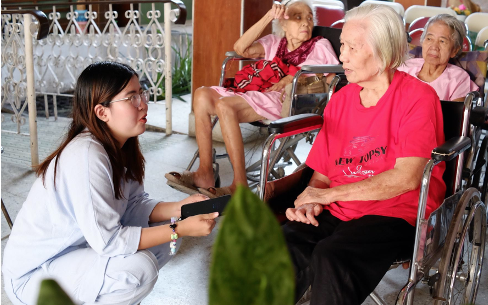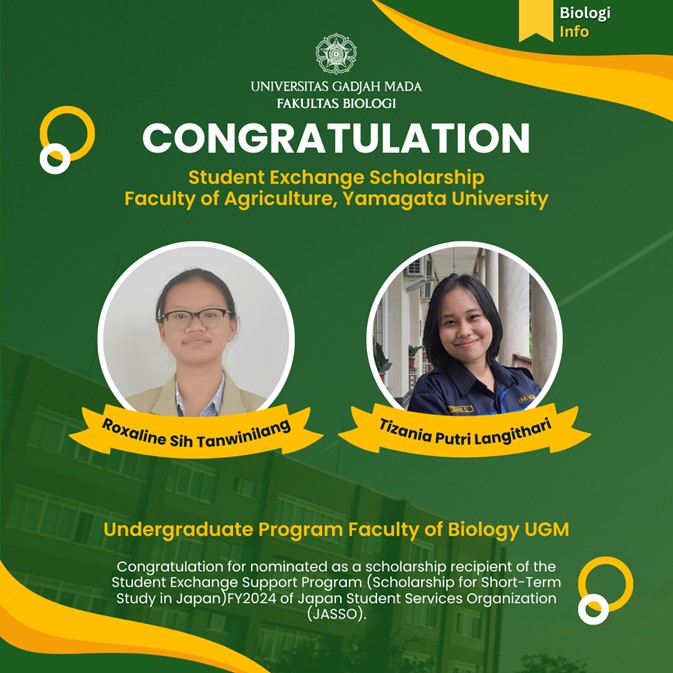
Arsip:
Headline
Two Students of Faculty of Biology UGM are Selected for Scholarship Nomination for Student Exchange Support Program 2024 at Yamagata University. Miss Maya Nakajima from the International Office, Faculty of Agriculture, Yamagata University, is pleased to announce that Roxaline Sih Tanwinilang and Tizania Putri Langithari have been nominated as scholarship recipients for the prestigious Student Exchange Support Program 2024 at Yamagata University under the JASSO scholarship. During the program, Roxaline will be under the supervision of Professor Dr. Tatsuya Ashitani, and Tizania will be under the supervision of Assoc. Prof. Dr. Satoru Sato.
Roxaline Sih Tanwinilang and Tizania Putri Langithari are dedicated students from the Faculty of Biology at Universitas Gadjah Mada (UGM) and have demonstrated exceptional academic performance and a strong commitment to their fields of study. Additionally, Roxaline was a recipient of the Sakura Science Program from Yamagata University in 2024.
The nomination of Roxaline and Tizania underscores UGM’s commitment to fostering international academic exchange and collaboration. This opportunity will allow them to benefit from the unique academic and cultural experiences offered by Yamagata University. The Student Exchange Support Program 2024 is designed to enhance the academic and professional development of participants while also strengthening the ties between both institutions.
The Dean of the Faculty of Biology, Prof. Dr. Budi Setiadi Daryono, M.Agr.Sc., stated that the Faculty of Biology at UGM is confident that Roxaline and Tizania will represent UGM with excellence and distinction, contributing to the ongoing success of the exchange program. Their nomination is a significant step in fostering future collaboration and sets a precedent for next year’s students to visit Yamagata University.
Yogyakarta, 17 May 2024 – Dr. Parvez Alam, A Reader (Professor without a Chair) from the School of Engineering, University of Edinburgh, United Kingdom and Adjunct Professor at the Faculty of Biology, Gadjah Mada University delivered a public lecture entitled “Biology-Engineering Interface”. The public lecture took place in the Tropical Biology Auditorium, Faculty of Biology, UGM and was attended by students and lecturers from the Faculty of Biology.
Dr. Eko Agus Suyono, M.App.Sc. as Vice Dean for Research, Community Service, Collaboration and Alumni Affairs of the Faculty of Biology was also present to open and moderate the guest lecture.
“Biology has an extreme level of diversity,” said Dr. Parvez started his presentation last Friday (17/5). The Biomaterials and Biomimetics expert from the University of Edinburgh mentioned how scientists try to create imitations of the diversity of existing organisms, which he then called bio-mimetic design.
Dr. Parvez explained an example of an aircraft fin mechanism that is designed to capture air stably, which he then tried to develop into the possibility that the fin would be located at the front: stable but with a speed rate that could be maximized. “But it is not working at the moment because biology is beyond further,” Dr. Parves added.
Bio-mimetic research has been developed by scientists all over the world from the macro level to the molecular level. Development of building structures inspired by human bones: strong, sturdy, but light; the design of gloves that can stick to dry surfaces is inspired by lizards, to how spider webs are 350 times stronger than steel.
Dr. Parvez then explains how the morphological design and structure of organisms is formed according to their way of survival and environment, including how humans try to redesign these morphological structures. Dr. Parvez mentioned several bio-mimetic studies on the claws of arboreal animals to strength research on spider egg casings.
“How can biology help engineers?” Dr. Parvez presented a study by his students who tried to design wings inspired by the mechanism of insect wings. The study focuses on energy efficient flight mechanisms based on insect wing movements with minimal muscle movement.
“How can biology help engineers?” Dr. Parvez presented a study by his students who tried to design wings inspired by the mechanism of insect wings. The study focuses on energy efficient flight mechanisms based on insect wing movements with minimal muscle movement.
It is hoped that this synergy between the fields of biology and engineering can explore more deeply how organisms form and work, and implement this in today’s technology.
The public lecture was followed by a question and answer session. Participants, both students and lecturers, were very enthusiastic about attending the lecture and were interested in studying biomimetic engineering in the future.
The public lecture was closed by Prof. Dr. Budi Setiadi Daryono, M.Agr.Sc. as Dean of the Faculty of Biology. It is hoped that this public lecture can become a forum for inspiration for collaboration as well as strengthening collaborative relations, especially between the Faculty of Biology UGM and the University of Edinburgh in the future, in line with the commitment to the Sustainable Development Goals for improving inclusive education and expanding international cooperation (SDG 4 and 17).
On Sunday, April 28, 2024, the Garden Architecture Study Group (KSAT) organized an educational field trip for seedling members. The purpose of this field trip was to enhance their knowledge and skills in applying the material from Small Group Discussion 2 (SGD 2) on architecture landscape, which had been presented a few weeks earlier. The field trip included presentations from the Plant Diversity Sub-Division and the Landscape Ecology Sub-Division, as well as practical application sessions from the SGD 2.
The event began with an opening speech by Laksita Chesarina, the Science Coordinator from KSAT 2021. This was followed by an opening prayer and the field class presentations from each Science Sub-Division. During the field class, Seedlings were divided into groups, each accompanied by ‘Tree’ and ‘Sapling’ members from the respective Science Sub-Divisions. The first session, led by the Ecology Landscape Sub-Division, covered the interaction of abiotic factors with the environment and demonstrated the use of tools for creating mini reports, including measuring soil pH, soil moisture, and temperature at UGM’s Wisdom Park. The second session, conducted by the Architecture Landscape Sub-Division, involved the practical implementation of garden design, including site inventory and notation on a base map. The final session, presented by the Plant Diversity Sub-Division, focused on the growth forms, macromorphological characteristics, and aesthetic values of plants.After the field class presentations, representatives from each station presented their findings, followed by an explanation of the assignments. The field trip concluded with a closing prayer and a documentation.
The 2024 field trip proceeded smoothly and on schedule. It is hoped that this activity will enhance the Seedlings’ ability to apply the Small Group Discussion 2 material and strengthen the sense of community among KSAT members. Furthermore, it is anticipated that KSAT will continue to grow and thrive, deeply rooted in its mission to benefit the academic community and society at large.[Author: KSAT 2024]
Yogyakarta, May 12, 2024 – On May 10, 2024, the Faculty of Biology at UGM visited a palm oil plantation managed by APKASINDO in Penajam Paser Utara Regency, East Kalimantan. The activity consisted of discussion and a field visit to a palm oil plantation. During the opening remarks of the visit, Prof. Dr. Budi Setiadi Daryono, M. Agr. Sc., The Dean of the Faculty of Biology UGM, stated the visit was aimed to understand the issues faced by palm oil plantations, including production challenges and the real conditions experienced by the community. He hoped that the Faculty of Biology UGM could grasp the process of palm oil cultivation from growth to its re-utilization as valuable products, especially within local communities, and foster cooperation in research, community service, and education sectors.
Following this, there was a discussion with Mr. La Ode Hitua Hubaisi, a palm oil farmer since 2010, an APKASINDO administrator, and the chairman of a cooperative in his district. He is part of the Setia Kawan Farmers Group, which consists of 98 members with a total plantation area of approximately 317 hectares. He mentioned that the presence of the IKN directly impacts palm oil plantations in Kalimantan, as urban expansion leads to competition with plantations. Mr. La Ode emphasized the importance of cooperatives that bridge the gap between farmers and Palm Oil Mills (PKS).
The cooperative in Penajam is the largest community cooperative partnering with PKS and has been operational for five years, even before the pandemic. This cooperative ensures that PKS fairly purchases palm oil bunches from farmers, valuing their hard work. Currently, cooperatives have been established in each district with funds collected from personal contributions, allowing farmers to collectively benefit from the profits. Mr. La Ode expressed concern over the resistance against cooperatives, although cooperatives actually benefit palm oil farmers by preventing exploitation by middlemen who collect substantial profits. Moreover, with the 2025 ISPO policy, Palm Oil Mills (PKS) are required to partner with cooperatives to facilitate both local and export marketing.”We must not give up. If we do, no one else will fight for it,” he said. Part of the cooperative’s profits is allocated to education funds. Scholarships for college are provided through the Palm Oil Plantation Fund Management Agency (BPDPKS) to 3-4 children of palm oil farmers or laborers and non-palm oil farmers. This visit opens the possibility for selected local youth contributing to the advancement of palm oil to study at Universitas Gadjah Mada.
Mr. La Ode also explained the processes of seeding, planting, maintenance, pruning, harvesting, disease management, and the production lifespan of palm oil. One of the cooperative’s programs discusses the use of a combination of organic and inorganic fertilizers. The Faculty of Biology has been using small-scale leaf and litter shredders, hoping that similar methods can be applied by palm oil farmers for pruned leaves and fronds. Next, the Faculty of Biology UGM team visit the palm oil plantation accompanied by Mr. Fauzul ‘Didiek’ Idhi and guided by Mr. La Ode, who explained the planting procedures and regulations implemented by the Penajam Farmers Group, East Kalimantan. The activity concluded with a group photo.
The visit is expected to contribute to the achievement of Sustainable Development Goals (SDGs). Through this training, we aim to address four crucial points of the 17 SDGs: SDGs 4; quality education, SDGs 8; decent work and economic growth, SDGs 9;industry, innovation, and infrastructure, and SDGs 17; partnerships for the goals. Additionally, this activity represents an IKU 6 achievement for the Faculty of Biology UGM as it involves exploring cooperation with private companies or the general public. It also contributes to education by recommending potential BPDPKS scholarship recipients and generating research ideas eligible for BPDPKS grants.This visit is expected to provide insights to the Faculty of Biology and palm oil farmers through joint discussions and enhance cooperation with partners, contributing to sustainable development beneficial for all parties involved. [UGM Palm Oil Research Team]
Herpetology Study Group (KSH) Alumni Sharing 2024 – Unlocking Futures: A Journey to LPDP Scholarship
On Sunday, May 5, 2024, the KSH Alumni Sharing Session 2024 was held with the theme “Unlocking Futures: A Journey to LPDP Scholarship.” Organized by the KSH Network Sub-Department, the event aimed to provide insights about scholarships to KSH members. The event took place online via Zoom meeting from 08.00 – 12.00 WIB and was attended by 28 active KSH members.
The session was opened by the MC and moderator, Firchamy Vuqi Aulia. The event began with an opening ceremony, prayer, singing the KSH anthem, reading the KSH Code of Ethics, and a welcome speech from the Head of the Community Service and Public Relations Department, Jessica Desviana. Following this, a sharing session on the details of the LPDP Scholarship was conducted by KSH alumni Nisrina Salsabila, S.Si., and M. Zulfiqar Meizar Pratama, S.Si., both are awardee of the LPDP Scholarship. After the sharing session, there was a Q&A session, followed by the presentation of certificates to the two speakers.
The event concluded with a closing prayer and a group photo. The session was considered to have run smoothly and was met with great enthusiasm. It is hoped that the event provided significant benefits to all participants by deepening their knowledge of the LPDP Scholarship.[Author: KSH]
Undergraduate students from the Faculty of Biology made another achievement by winning a bronze medal in the National Essay Competition “Soedirman Event of Animal Husbandry 7.0” held on May 4-5, 2024. The team, consisting of Muhammad Syahrul Firdaus (Biology 2022), Annisa Nur Baety (Biology 2022), and Dzakiyyah (Animal Science 2023), under the guidance of Moh. Sofi’ul Anam, S.Pt., M.Sc. This national competition was organized by the Research and Development Unit of Animal Husbandry (UP3) at the Faculty of Animal Husbandry, Universitas Jenderal Soedirman, with the theme “Innovation and Creativity of Gen Z in Preventing Global Boiling Through Enhancing Climate Resilience for a Faster Recovery and Stronger Indonesia.”
The competition involved several stages, including proposal submission, preparation for presentation, and presentations before a panel of judges.
The competition involved several stages, including proposal submission, preparation for presentation, and presentations before a panel of judges.
The team focused on the animal husbandry subtheme with their essay titled “The Potential of Spirulina sp. and Yucca schidigera Extracts as Feed Additives to Reduce Methane Emissions in Ruminant Livestock.” This innovation was driven by the increasing global temperatures, partly due to rising methane emissions from the livestock sector. Global warming can degrade feed quality, reduce livestock productivity, and cause diseases and death in livestock.To address these issues, the team proposed an innovative feed additive combining Spirulina sp. and Yucca schidigera. Spirulina sp. is a filamentous microalga containing 50-70% protein and 11-18% tannins, while Yucca schidigera is a plant adapted to extreme environments, containing 30-60% saponins. Using these two ingredients as feed additives, can meet livestock nutritional needs, reduce methanogen and protozoa populations in the rumen, decrease methane emissions, improve feed efficiency, and maintain livestock productivity and health.
This innovation is expected to provide a solution to the livestock sector’s challenges in Indonesia. Additionally, the team hopes that participating in this competition will inspire young Indonesians to develop creative ideas and contribute to sustainable development goals (SDGs). [Author: Annisa Nur Baety]
Herpetofauna Systematics, from March to April 2024. This activity is part of the Research and Development Department’s (Litbang) program, aimed to enhance the knowledge of KSH Junior Members (AM) in herpetology.
The GSD was divided into five sessions, covering topics from the Amphibia, Testudinata, Crocodylia, Serpentes, and Lacertilia divisions. The sessions were held every weekend, with participants from AM 34, the youngest cohort. Each session was delivered by the Senior Council of each respective division and concluded with an oral post-test.The GSD #1 included a general overview of animal systematics, herpetofauna taxonomy and classification, a brief review of herpetofauna evolution and phylogeny, and understanding herpetofauna identification methods.
The culmination of GSD #1: Herpetofauna Systematics was the Final Assessment (PA) on Saturday, May 4, 2024, held at the gazebo of the Faculty of Biology, UGM. The assessment took place from 11:40 AM to 1:40 PM WIB using Google Forms. Participants were divided into three groups and stationed around the gazebo under the supervision of the Senior Council. Overall, the GSD #1: Herpetofauna Systematics series ran smoothly and is expected to significantly enhance the herpetological knowledge of the participants.[Author: KSH]
Yogyakarta, May 9, 2024 – Fakultas Biologi Universitas Gadjah Mada (UGM) proudly announces the launch of the Biodiversity Curator Program, a groundbreaking initiative in the field of biodiversity conservation and management. Spearheaded by Prof. Dr. Budi Setiadi Daryono, M.Agr.Sc., Dean of the Faculty of Biology, this program marks a significant milestone as the first of its kind in Indonesia and Asia, and only the second globally after Cambridge University in the UK.
The Biodiversity Curator Program is designed to address the growing demand for professionals specialized in biodiversity conservation and curation, in alignment with the national and global conservation efforts. Prof. Budi Setiadi Daryono emphasized the program’s importance, stating, “This initiative is a testament to our commitment to nurturing future leaders in biodiversity conservation and management.”
Applications for the program are now open through the regular admissions process via UM UGM. Additionally, starting from 2025, a Recognition of Prior Learning (RPL) program will be introduced for individuals with a minimum of five years of work experience in the field of Biology/Biodiversity. This strategic move aims to accommodate professionals seeking to further their expertise in biodiversity conservation.
The establishment of the Biodiversity Curator Program is highly relevant in light of the recent Ministerial Decree PAN-RB No.173/2024, which underscores the crucial role of Biodiversity Curators (Kehati) in serving the needs of the government, state, and society.
Applications are invited from graduates holding Bachelor’s, Master’s, or Doctoral degrees in relevant fields. With a limited capacity of 30 seats, prospective students are encouraged to apply early to secure their spot in this prestigious program.
For more information and to apply, please visit www.um.ugm.ac.id, follow us on Instagram at @biologi_ugm, or contact us via email at profesi.biologi@ugm.ac.id or WhatsApp at 085293361866.
Join us in shaping the future of biodiversity conservation through excellence in education and research at Fakultas Biologi UGM.
Join us in shaping the future of biodiversity conservation through excellence in education and research at Fakultas Biologi UGM.
Tuesday, 7 May 2024, The Faculty of Biology Library Universitas Gadjah Mada organized the Book Launch and discussion of “Kantong Terakhir Anak Adalah Amanah Tuhan” by Prof. Dr. Suwarno Hadisusanto, SU in anticipation of World Thalassemia Day. The event consisted of blood donation and book review. The blood donation was held in collaboration with the UGM Academic Hospital Blood Donation Unit and was attended by over 60 participants, including members of the Faculty of Biology and public. The blood donation took place from 08:00 – 12:30 WIB at the Moeso Suryowinoto Indonesia Biodiversity Center (MSIBC) building, Faculty of Biology, UGM.
The Launching and Book Review of “Kantong Terakhir Anak Adalah Amanah Tuhan” by Prof. Dr. Suwarno Hadisusanto, SU took place from 10:00 to 12:15 WIB at the Tropical Biology Auditorium, Faculty of Biology, UGM, and was also streamed via the Kanal Pengetahuan Biologi YouTube Channel. The event began with an opening speech by Drs. Ign. Sudaryadi, M.Kes, as the committee chairman and the Head of the Faculty of Biology Library, who expressed utmost appreciation to the speakers, Prof. Dr. Suwarno Hadisusanto, SU, and the book reviewer Dr. dr. Sri Mulatsih, Sp.A. (K), MPH, and was moderated by Dr.Niken Satuti Nur Handayani, M.Sc.. The event was officially opened by the Dean of the Faculty of Biology UGM, Prof. Dr. Budi Setiadi Daryono, M.Agr.
The event preceded with presentation from Prof. Dr. Suwarno Hadisusanto, SU as the book author. The book contains the life journey of his son, Yudistira Briliantama as a Thalassemia patient from birth to adulthood. Besides that, Prof. Suwarno also educated the audience about the history of thalassemia and general knowledge about it. He also discussed the burdens faced by thalassemia patients and their caregivers, including psychological, social, and economic burdens. After the speaker session concluded, the activity continued with a review session.
The review session was led by Dr. Sri Mulatsih, Sp.A. (K), MPH, who is a pediatrician at Dr. Sardjito Hospital. Dr. Mulat shared her interpretation of the book “Kantong Terakhir.” Additionally, she provided updates on current conditions related to thalassemia management, ranging from oral iron chelator medication to changes in thalassemia carrier consultation methods implemented by her. After the review session ended, it proceeded to a question and answer session moderated by the host. Three participants raised questions directed towards Prof. Suwarno and Dr. Mulat. After the Q&A session concluded, the event continued with the distribution of door prizes to participants. The activity concluded with a lunch together at the west side of the Tropical Biology Auditorium.
This year, the Christian Student Fellowship (PMK) of the Faculty of Biology organized an Easter activity in the form of a social service as a tangible expression of love in action. This activity was a collaboration between the Christian Student Family (KMK), the Catholic Student Association (KMK), and the Graduate Student Association (KMP) of the Faculty of Biology. The theme of this year’s Easter was “LOVE IN ACTION,” taken from John 13:34. Lord Jesus commands us to love one another not only in words but also in deeds. Therefore, this activity aimed to manifest actions of love that the Lord has bestowed upon us through social service activities. The event took place on Saturday, April 27, 2024, at Panti Wreda Hanna from 16:00 to 17:30 WIB. The event was attended by Prof. Dr. Kumala Dewi, M. Sc. St., as the supervising lecturer of PMK Biology UGM, Dr. Yekti Asih Purwestri, S.Si., M.Si., as a lecturer from the Faculty of Biology, the event committee, servers, and members of PMK, KMK, and KMP of the Faculty of Biology.
Before the activity commenced, the committee was already at the location to prepare and organize the items. The event began with an opening by the MC, followed by speeches from the Easter chairman and representatives from Panti Wreda Hanna, followed by the presentation of donated items to the nursing home and plaques as souvenirs. The event continued with a moment of reflection and an opening song accompanied by the presentation of roses to the grandmothers at the nursing home. The sermon for this activity was delivered by Pastor Mike Makahenggang, S. Si, M. A. Ps., from GKJ Brayat Kinasih, Yogyakarta. The theme of the sermon aligned with the theme of the activity, which was love manifested in tangible actions. The event concluded with a sharing session with the grandmothers. Through this activity, it is hoped that we can all demonstrate our love for fellow human beings not only through words but also through tangible actions, as the Lord Himself has shown us tangible proof of His love for all of us. [Author: PMK]


